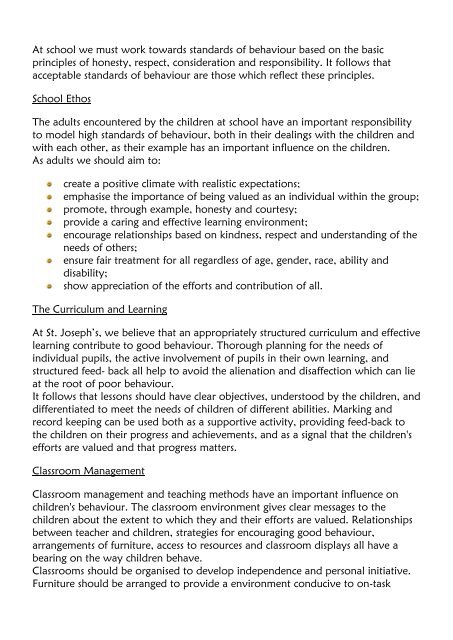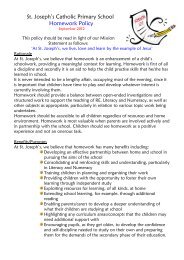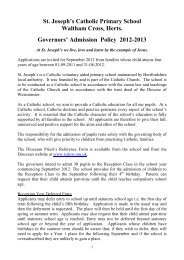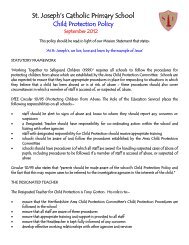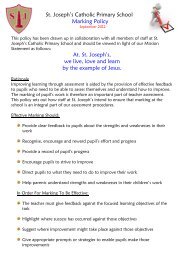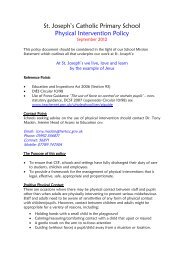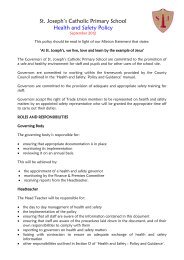Behaviour Policy - St. Joseph's Catholic Primary School
Behaviour Policy - St. Joseph's Catholic Primary School
Behaviour Policy - St. Joseph's Catholic Primary School
You also want an ePaper? Increase the reach of your titles
YUMPU automatically turns print PDFs into web optimized ePapers that Google loves.
At school we must work towards standards of behaviour based on the basic<br />
principles of honesty, respect, consideration and responsibility. It follows that<br />
acceptable standards of behaviour are those which reflect these principles.<br />
<strong>School</strong> Ethos<br />
The adults encountered by the children at school have an important responsibility<br />
to model high standards of behaviour, both in their dealings with the children and<br />
with each other, as their example has an important influence on the children.<br />
As adults we should aim to:<br />
create a positive climate with realistic expectations;<br />
emphasise the importance of being valued as an individual within the group;<br />
promote, through example, honesty and courtesy;<br />
provide a caring and effective learning environment;<br />
encourage relationships based on kindness, respect and understanding of the<br />
needs of others;<br />
ensure fair treatment for all regardless of age, gender, race, ability and<br />
disability;<br />
show appreciation of the efforts and contribution of all.<br />
The Curriculum and Learning<br />
At <strong>St</strong>. Joseph’s, we believe that an appropriately structured curriculum and effective<br />
learning contribute to good behaviour. Thorough planning for the needs of<br />
individual pupils, the active involvement of pupils in their own learning, and<br />
structured feed- back all help to avoid the alienation and disaffection which can lie<br />
at the root of poor behaviour.<br />
It follows that lessons should have clear objectives, understood by the children, and<br />
differentiated to meet the needs of children of different abilities. Marking and<br />
record keeping can be used both as a supportive activity, providing feed-back to<br />
the children on their progress and achievements, and as a signal that the children's<br />
efforts are valued and that progress matters.<br />
Classroom Management<br />
Classroom management and teaching methods have an important influence on<br />
children's behaviour. The classroom environment gives clear messages to the<br />
children about the extent to which they and their efforts are valued. Relationships<br />
between teacher and children, strategies for encouraging good behaviour,<br />
arrangements of furniture, access to resources and classroom displays all have a<br />
bearing on the way children behave.<br />
Classrooms should be organised to develop independence and personal initiative.<br />
Furniture should be arranged to provide a environment conducive to on-task


